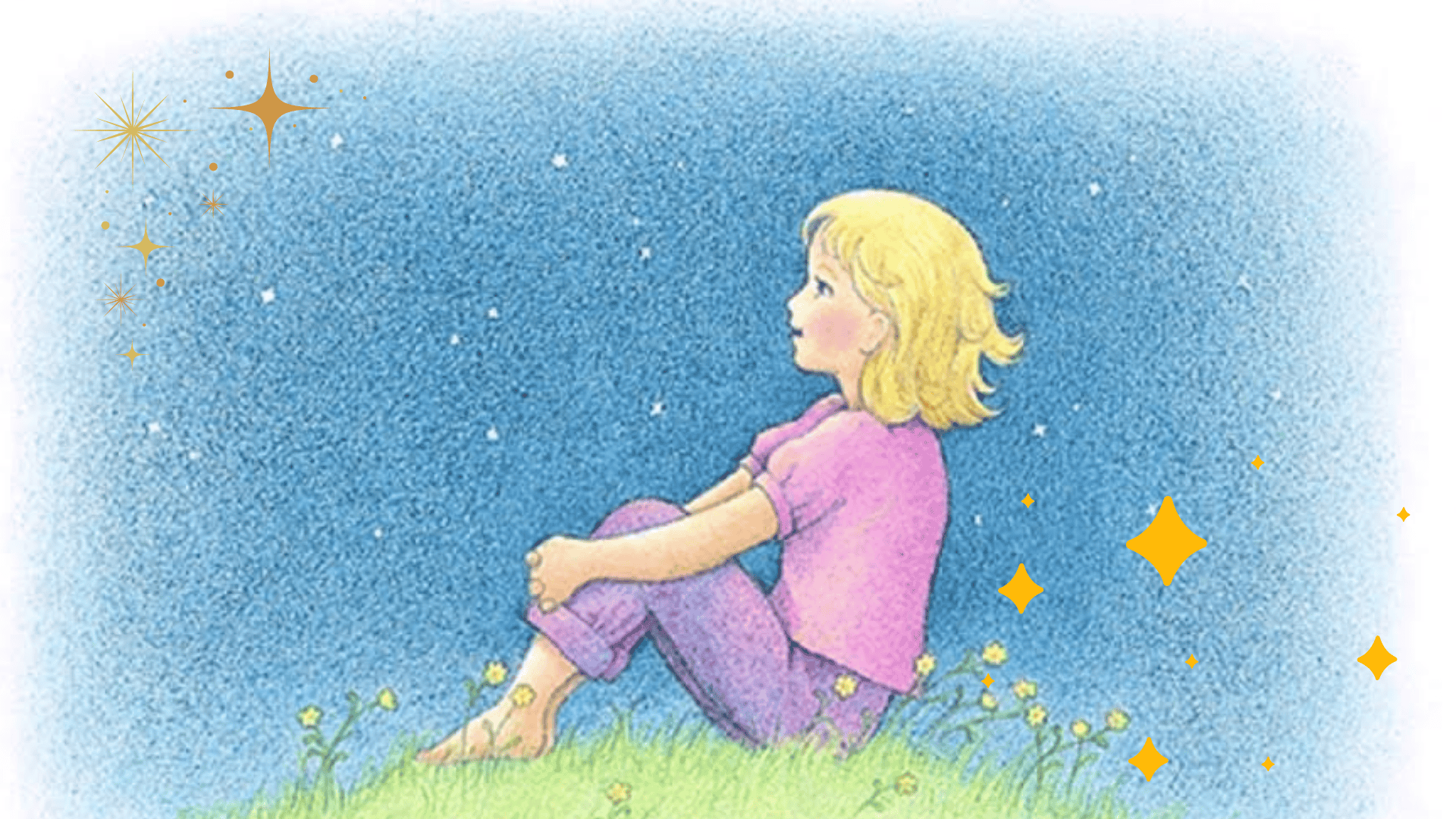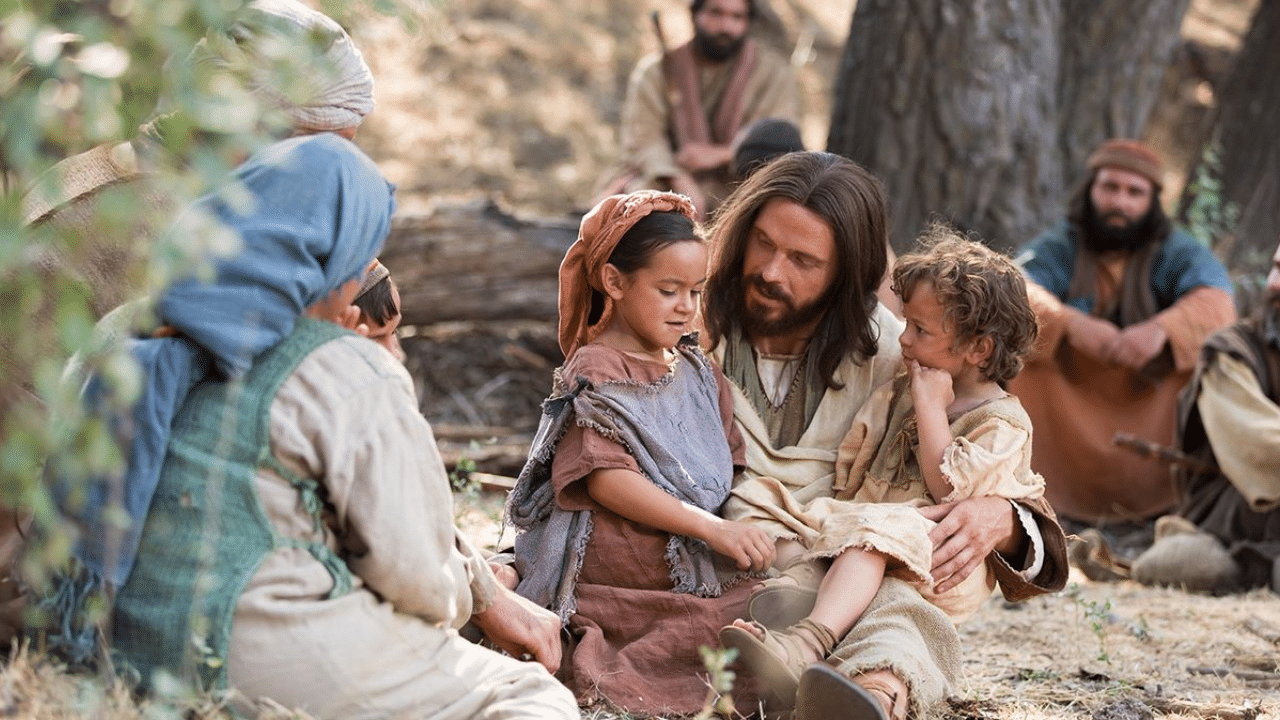Ever wonder when kids start singing? You’ve probably heard a toddler humming along to a tune or even trying to belt out their favorite song from a movie.
But when do they actually start singing on their own? Singing is a big milestone in a child’s development, and it happens earlier than you might think!
From baby babbling to the first real notes, every kid’s singing story is different. Some start singing before they can even speak clearly, while others wait a bit longer.
This guide provides parents with the scoop on when kids typically start singing, what signs to watch for, and how to encourage those musical moments.
So, get ready to tap your feet and sing along because your kid’s voice may be ready to take center stage sooner than you expect!
Best Age for Children to Start Singing
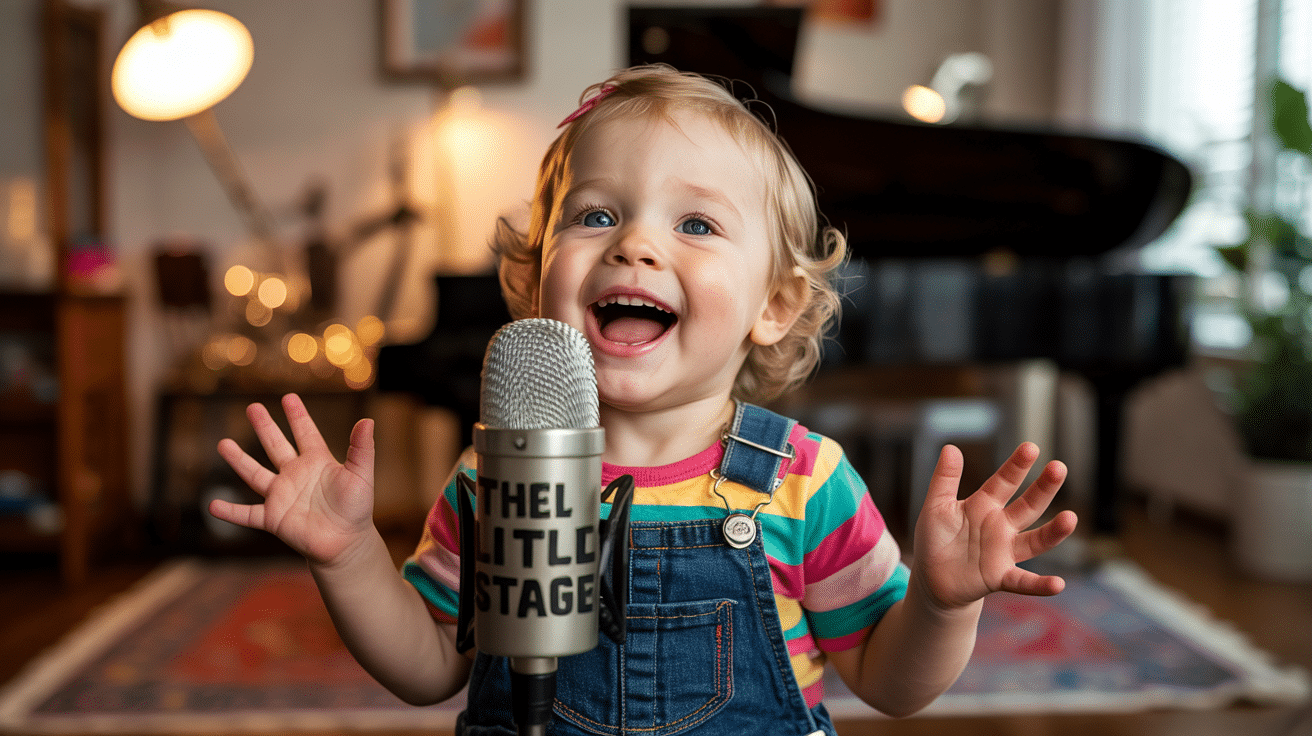
Singing is a natural part of a child’s development, and it can start much earlier than you might think! The best age for children to start singing varies for each child, but music has been proven to play a huge role in their growth from infancy onward.
Exposure to melodies and rhythms helps build language skills, boosts memory, and even supports emotional development. While some kids might be singing full songs before they even reach preschool age, others might take their time.
The key is to create a fun and supportive environment that encourages them to increase their musical abilities.
From baby babbles to beautiful tunes, children’s singing abilities grow as they age, and the earlier they start, the more they benefit in the long run!
Typical Milestones in Singing Development
Every child is different, but there are some common milestones when it comes to singing.
-
Infants (0-12 months): While babies aren’t singing yet, they’re soaking up sounds from the world around them. They’ll start babbling in rhythm, responding to music, and even trying to mimic the sounds they hear.
-
Toddlers (1-3 years): This is when the fun begins! Toddlers love to sing along with familiar tunes, even if it’s just a few words or sounds. They might not get the lyrics right, but they sure know how to have fun with the music!
-
Preschoolers (3-5 years): Kids in this age group start to sing songs more clearly, hold a tune, and even pick up on simple melodies and rhythms. They love repeating what they hear and may even try to sing their favorite songs from start to finish.
-
School-age Kids (6+ years): By this age, many kids are ready to start singing more seriously. They’re more capable of singing in tune, remembering lyrics, and exploring different types of music. Some may even be ready for formal lessons!
So, while there’s no specific “perfect age” to start, encouraging a love for music from a young age can set your child on the right path for future singing success!
5 Signs Your Child is Ready to Start Singing Lessons
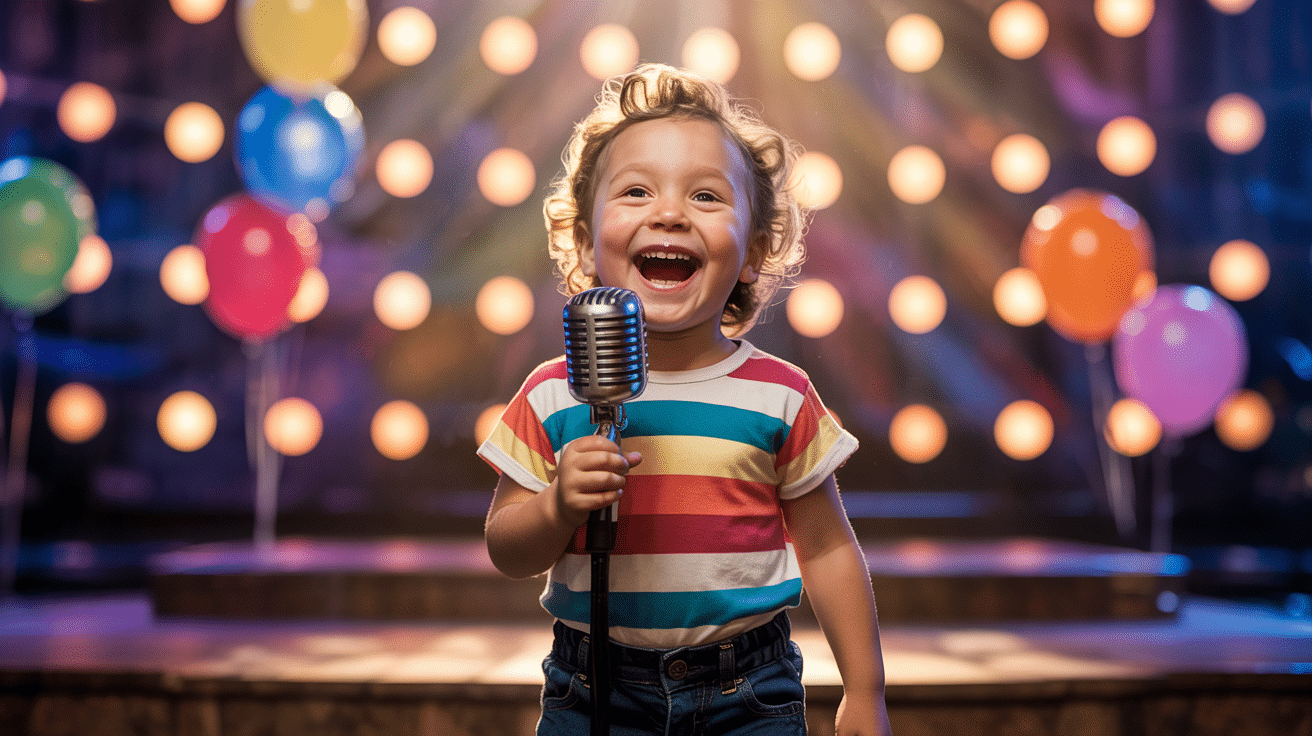
As your child grows, they may start showing clear signs that they’re ready to take their singing skills to the next level. Here are five signs that your child might be prepared for formal singing lessons:
1. They Can Hold a Tune
If your child is starting to sing along to songs and consistently hits the correct notes, it’s a sign that their pitch recognition is improving.
Holding a tune is one of the first skills taught in singing lessons, so if they can do it naturally, they may be ready to learn more structured techniques.
2. They Show Interest in Learning New Songs
When your child actively seeks out new songs to sing or asks to learn specific tunes, it’s a good indicator they’re ready for lessons.
If they’re curious about music and eager to sing, it shows they have a passion for learning, which is essential for success in singing lessons.
3. They Can Follow Simple Rhythms and Melodies
Being able to clap along to a beat or repeat a melody they’ve heard shows that they understand basic musical concepts.
Singing lessons will build on this ability, teaching them how to work with rhythms, dynamics, and more complex melodies.
4. They are Emotionally Engaged in Music
If your child loves to sing and expresses strong feelings when doing so—joy, excitement, or even sadness—they’re starting to connect with music emotionally.
Singing lessons can help them harness that emotional connection, using their voice to express themselves more deeply through music.
5. They Want to Sing in Front of Others
If your child has started performing for family and friends, even if it’s just a few lines of their favorite song, it shows they’re becoming confident in their voice.
A willingness to perform is a good sign they’re ready to take singing more seriously and can handle the structure of formal lessons.
If your child shows one or more of these signs, it might be the perfect time to sign them up for singing lessons! Their excitement and readiness will help them to learn more about music and their voice.
Age-Wise Suggestions for Music

Music plays a crucial role in a child’s development, and introducing the right type of music at each stage can help boost their learning and growth.
Here are age-wise suggestions for music that will support and stimulate your child’s musical abilities:
0-12 Months Kids
Soothing lullabies and gentle melodies are perfect for babies. These types of music help calm them, while the repetition in tunes also helps babies recognize patterns and rhythm.
Singing or playing soft instrumental music can help them develop early listening skills and bond with caregivers.
-
Recommended Music: Soft lullabies, instrumental sounds, and nature sounds.
-
Benefits: Helps babies relax, improve listening skills, and bond emotionally with caregivers.
1-3 years kids
Toddlers love fun, repetitive, and interactive music. Nursery rhymes with actions like “Twinkle, Twinkle, Little Star” or “Wheels on the Bus” help them build their vocabulary and motor skills.
Upbeat tunes with simple lyrics also get toddlers moving and dancing, improving their coordination.
-
Recommended Music: Nursery rhymes, interactive songs (e.g., “If You’re Happy and You Know It”).
-
Benefits: Builds vocabulary, encourages movement, develops rhythm and coordination
3-5 Years Kids
As your child grows, they begin to grasp simple melodies and rhythms more clearly. Introduce them to fun, age-appropriate songs with more structure, like children’s songs, sing-alongs, and even songs from movies.
Songs with a steady beat, hand motions, and easy-to-remember lyrics can help with both their speech and motor skills.
-
Recommended Music: Simple children’s songs, sing-alongs, and movie theme songs.
-
Benefits: Memory development, building of rhythm, improvement of speech, and encouragement of singing and movement.
6+ Years Kids
By school age, children are ready to learn a variety of music styles, from pop and rock to classical and jazz. This is an excellent time to introduce more complex rhythms, melodies, and harmonies.
School-age children may even start expressing interest in learning an instrument or singing lessons, so it’s a great idea to let them learn different genres to find what excites them.
Music that tells a story or has clear lyrics can also spark their creativity and imagination.
-
Recommended Music: Pop, rock, classical, jazz, and storytelling songs.
-
Benefits: Development of creativity, increase in different genres, and improvement of coordination and understanding of melody.
Tips When Starting Singing Lessons
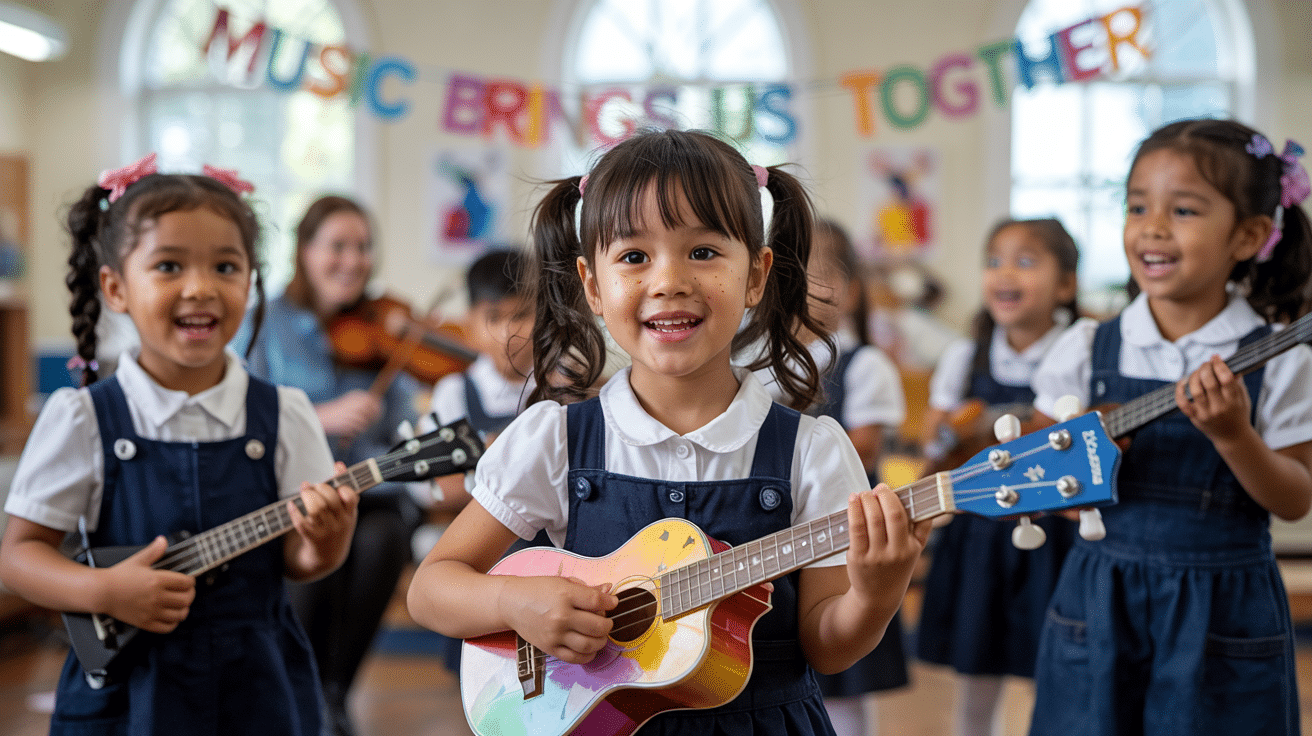
Starting singing lessons is an exciting time for both kids and parents! If your child is new to singing or already has some experience. Here are some helpful tips to make the most of their singing story:
1. Create a Positive and Fun Environment
Singing should be enjoyable! Make sure your child feels comfortable and excited about learning. Keep the lessons lighthearted, encouraging, and fun. When kids enjoy the process, they’re more likely to stick with it and improve.
-
Tip: Let them choose songs they like to start with. It will keep them motivated and engaged!
2. Be Patient and Allow Time for Growth
Learning to sing takes time, especially as they develop their vocal technique. Progress might be slow at first, and that’s okay! Be patient and remind your child that it’s all about practice and enjoying the process.
-
Tip: Celebrate small wins—If it’s singing their first full song or hitting the right notes consistently!
3. Encourage Regular Practice
Consistency is key to improvement. Please encourage your child to practice regularly, but don’t overdo it. Short practice sessions (10–20 minutes) are often better than long ones, as they can stay focused and have more fun.
-
Tip: Make practice a routine, like singing before or after school, to build a habit.
4. Choose the Right Teacher
The right teacher can make a big difference! Look for someone who understands how to work with kids, is patient, and makes learning fun. A good teacher will help your child build confidence and develop their voice safely.
-
Tip: Ask for recommendations and make sure the teacher is experienced in working with children.
5. Focus on Vocal Health
Please remind your child to always warm up their voice before singing and to avoid straining their vocal cords. Proper breathing techniques and posture can also help protect their voice.
-
Tip: Encourage hydration—drinking water is important for keeping the vocal cords healthy.
6. Emphasize the Importance of Expression
Singing is about more than just hitting the right notes. Teach your child to express emotions through their singing. This will help them develop their unique style and connect with the music on a deeper level.
-
Tip: Let them experiment with different emotions while singing, like happiness, sadness, or excitement, to help them understand how music makes them feel.
By following these tips, your child will feel confident, have fun, and make steady progress as they embark on their singing lessons!
Final Thoughts!
Starting singing lessons is an exciting step for any child who loves music! With the right mindset, practice, and a good teacher, kids can build their skills and gain confidence in their voice.
It’s important to keep things fun and relaxed, as this helps children stay motivated and enjoy the learning process.
Remember, every child progresses at their own pace, so patience is key. From holding a tune to expressing emotions through music, singing lessons open up a world of creativity and self-expression.
So, if your child is ready to take their singing to the next level, don’t wait—let the music begin! With a little encouragement and the right tools, they’ll be singing their heart out in no time.
Get started with singing lessons today!











